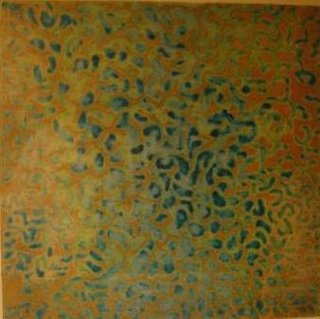At the student restaurant there was usually a line consisting of a United-Nations variety of other students, many of whom came from countries where the concept of waiting one's turn in a queue was a foreign notion. This meant that the line resembled something more like a funnel than a single-file line waiting to pass through to the dining room, so you had to be agressive and push your way along or you wouldn't get any breakfast. Such a funnel-like queue is a normal social phenomenon in many places around the world, and it indicates for me the absence of a fundamental aspect of the consensual arrangement we refer to as civilization. Ultimately, human society is probably just another cat pile, but without some surface-level niceties like the ingrained habit to faire le queue (form a line), life loses a certain measure of its charm.
There was a lot of activity in that hallway and something very jarring about the harsh voices jabbering incessantly in several strange languages and echoing off the hard surfaces of the walls and floor. I used to have a recurring dream that I think originated from repetitive exposure to that sound. In the dream I'm out in a large exterior area filled with people, all of whom are grunting and making guttural noises while slabs of meat and live chickens are thrown into the crowd from the open backs of trucks—a vision that's not far from the reality of daily life in some miserable areas of the world.
Without exception the weather was always gray—always. After my arrival I did not see the sun for more than eight months, which was very hard to bear at first, but after a few months I started to discern subtle differences between one cloudy day and the next, and realized that it's actually possible to adjust to such conditions, though it lent a grim dullness to the daily experience of living there. I went off to my dull classes in the Clignancourt direction, ate a dull lunch in another dull student restaurant, and in the afternoons took the same dull metro back towards Port d'Orleans to my dull workplace near Denfert Rochereau, which was a working section of the city then.
In fact the work was not really dull. I learned to be very good at multi-color viscosity printing using large rollers on deeply etched intaglio plates, and the printing shop contained another United-Nations variety of people who made an interesting crowd, a diverse and stimulating community that was comfortable to be part of in the huge foreign city, the first major city I'd lived in. Since then I've felt the need to live in a large international city where people mind their own business and are tolerant of differences. In that way and in others, my experience of living in Paris in the mid-seventies was formative. It's part of who I am, but as far as community goes, sauve qui peut la vie.


No comments:
Post a Comment